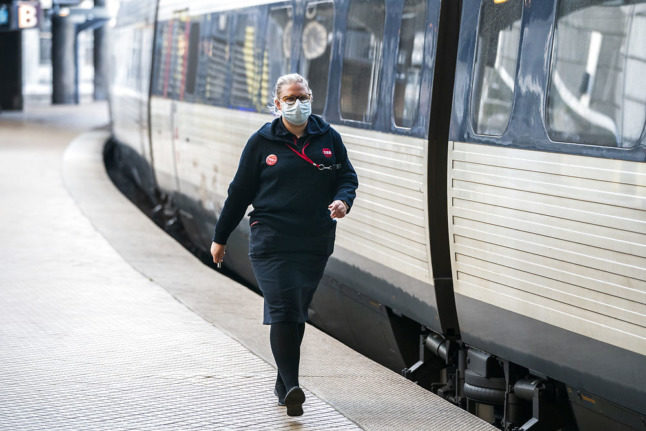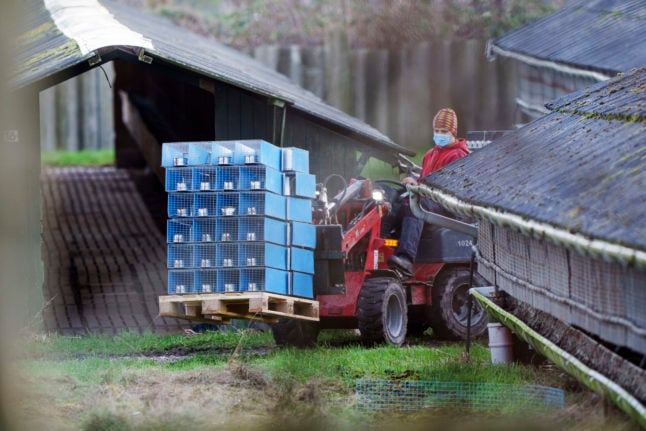Restrictions impacting the cultural sector in particular were eased on January 16th after parliament backed an easing of restrictions last week.
Other restrictions remain in place. Limits on alcohol sales and opening times for bars and restaurants are notable amongst these.
Coronapas and face mask requirements are also in place, as are Covid-19 testing rules for incoming travellers.
Culture
Up to 1,500 spectators or guests are now allowed at indoor culture and sports venues.
Cinemas, theatres, museums, concert venues and sports halls reopened on Sunday and are now allowed to have attendances of up to 1,500 for events, provided that the crowd is separated into three blocks of 500.
A capacity requirement at places of worship is also revoked.
The limit of 1,500 represents an upward revision of the 500 preferred by the government, which was outvoted by other parties when the new restrictions were determined.
Hospitality and nightlife
Bars and restaurants must stop serving by 10pm and close by 11pm, while the sale of alcohol is banned from 10pm to 5am. Nightclubs are closed.
These restrictions, which have been in place since December 19th, are now scheduled to expire on January 31st.
Health Minister Magnus Heunicke last week suggested that it is likely some restrictions on nightlife will remain beyond the end of this month.
Coronapas
Denmark’s Covid-19 health pass, the coronapas is now valid for five months after a person is fully vaccinated, meaning they have received their second dose of the original Covid-19 vaccination course (or only dose in the case of the Johnson & Johnson vaccine).
The coronapas becomes valid again or remains valid if the holder has received a booster vaccination.
According to the health ministry, the period for which the coronapas becomes invalid following a positive PCR test for Covid-19 is now 11 days (reduced from 14 days) under new rules which came into effect on January 16th. It remains valid until five months after the positive PCR test (unless the holder subsequently receives a second or booster vaccine dose).
No decision has yet been made on the validity period of the coronapas following the booster jab. As such, no expiry date is currently set for the pass following boosters.
A valid coronapas is currently required at bars, restaurants, cafes and several other customer-facing businesses in the service sector. It must also be presented on intercity trains and regional buses, at universities, language schools and other further education, at state workplaces and at gyms and places of worship.
Face masks
Face masks must be worn on public transport including buses, trains, light rail, Metro, ferries and taxis. Tourist buses are not exempted and the rule also applies on domestic flights. Masks must also be worn at transport terminals such as bus stops, rail stations and airports.
In shops and stores, face masks must be worn by customers. This also applies for customer-facing businesses in the service sector such as hairdressers, tattoo parlours, beauty and massage clinics, solariums (if staffed), driving schools and driving test centres.
Staff on public transport and in retail and services can be exempted from face mask rules if they have a valid coronapas.
It is likewise mandatory to wear a face mask at bars, restaurants, cafes and other businesses with a licence to serve alcohol, and at takeaway businesses. Guests may take masks off when sitting down.
Travel
Requirements to show a coronapas on long distance buses, Intercity and Intercity Lyn trains, as well as face mask rules on public transport, have been extended until January 31st, the Transport Ministry confirmed last week. Rail operator DSB has a seat reservation requirement in place for Intercity and Intercity Lyn trains until the end of January, meaning a reservation is obligatory on these services.
For foreign travel, a Covid-19 test must be taken in connection with arrival in Denmark. The rule, introduced in December and recently extended until the and of January, applies to Danish citizens and residents as well as foreign visitors. It also applies regardless of vaccination status.
Residents of Denmark are permitted to take a test up to 24 hours after arrival. People without an address in Denmark must take a Covid-19 test before entry to the Scandinavian country. The health ministry states that entry tests can be a PCR test up to 72 hours before arrival or a rapid antigen test taken up to 48 hours before arrival.



 Please whitelist us to continue reading.
Please whitelist us to continue reading.
Member comments